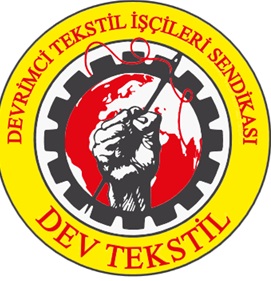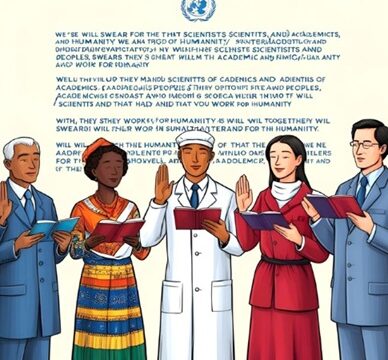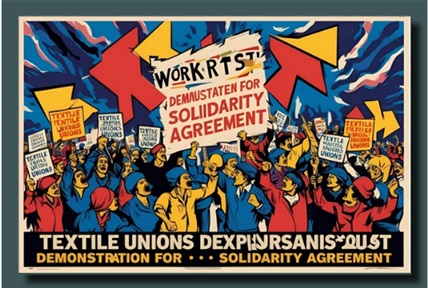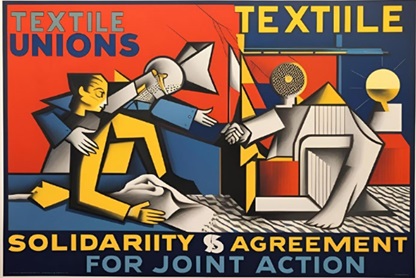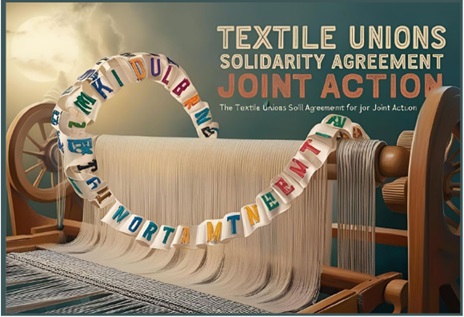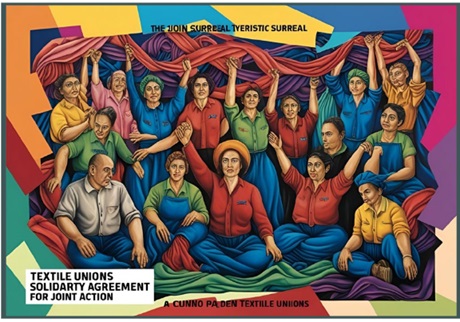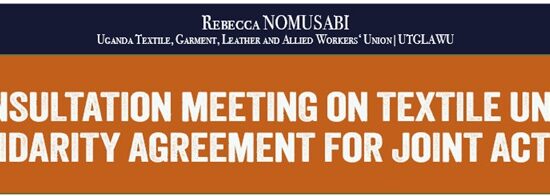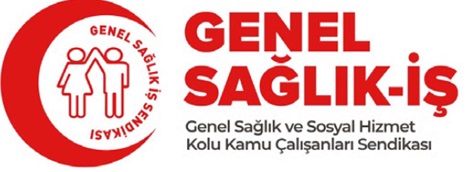Okan KARAÇAM
Revolutionary Textile Workers‘ Union – TÜRKİYE
The textile and garment sector has been the largest sector of production and trade since the Anatolian civilizations up to the Ottoman Empire and, later, the Republic of Türkiye. Along this process we could mention a self-sufficient textile industry, but due to tax laws enacted over the centuries, concessions, the development of technology and the increase in population, the textile industry has become an economy in which most of the raw materials are imported from abroad and which continues to maintain its place in different aspects only with cheap and skilled labor.
During the last century, partition wars, popular uprisings and social struggles, as well as the class struggle between labor and capital on a global scale, have caused changes in international balances. As a result of the energy and raw materials wars, the development of technology and the different alternatives in logistics and transport conditions, the balance has shifted back in favor of the capitalists.
Türkiye has also been affected by the changing political winds. Workers‘ rights were decreased and working conditions changed in the industries that went from being state-owned to privatized companies. Obviously, as workers‘ rights were being reduced, textile, garment and weaving capital continued to constitute one of the main sectors of the economy. Türkiye’s falling behind in the production of raw materials, expensive energy costs and high labor costs for international capital compared to countries such as China, India and Bangladesh caused production to be shifted to other countries. After Italy, it is the country with the second highest labor costs in the textile industry. Despite this situation, the fact that the labor force is qualified still creates a preferable situation. Countries such as China, India, Bangladesh, Pakistan and North African countries are followed by countries with large populations and the cheapest labor.
The difference in labor costs in the textile industry causes production to move rapidly to other areas or new economic policies are developed to reduce costs. At the core of these policies are low wages, flexible labor, outsourced work, migrant labor and long working hours reminiscent of the slavery era. To this we must add premature deaths due to reduced quality of life and occupational accidents, failure to adopt occupational health and safety measures, and failure to meet basic needs.
Employee protection is a fundamental problem and a matter of struggle in Türkiye and around the world. In spite of the fact that the textile industry offers a great diversity of cheap and skilled labor, the number of organized workers in Türkiye is very low. There are some 4 million workers in the textile sector, but 1.2 million of them are registered and less than 10% are unionized. The situation gets even worse if we consider that the existing unions are only engaged in the “struggle for wages”. What is left is a mass of workers whose rights have been usurped, who are not organized and are trying to save the day. The trade union struggle has become incapable of raising its voice against the problems and impositions faced by the working class as a whole, except for the protection of certain basic rights. While obstacles to organization and actions were created, the existing actions were paralyzed through increased repression, the threat of dismissal, the prohibition of actions and strikes, etc., the arrest of union leaders, police violence.
We observe these oppressive and dictatorial practices in many parts of the world. The bloody repression of the Bangladesh strike in 2023, the Sudanese workers‘ struggles that shook the dictatorship, the police raid on the Greif factory occupation in Istanbul, the Özak resistance in Antep, the capitalists‘ attempt to suppress workers‘ rights from expanding, and many more can be presented as examples of this. Attempts were made to neutralize it by different mechanisms of the capitalist state.
We must recognize that production is interdependent throughout the world and that we must have a joint struggle.
In this context;
* The international struggle of the working class for the protection of labor must go hand in hand with the growth of the global struggle against capitalism and the growth of trade union movements. We must respond to the imperialist-capitalist world system through the globalization of production and the globalization of workers‘ struggles.
* Urgent measures must be taken to organize the union struggle, not only for wage policy, but for the unity of the entire working class.
* Due to the global economic and political crisis, the rights of the working class are being cut back. International solidarity is weakening, let alone the struggle for the protection of fundamental rights In this context, it is essential to achieve popular unity to protect our current rights and achieve new advances.
* The class consciousness, solidarity and collective spirit of the working class was weakened. We have to keep alive class consciousness and class hatred by transmitting knowledge and historical experiences.
* The fact that the working class becomes refugees due to division wars, occupations or the expectation of living in better conditions, etc., increases racist discourses within the country and constitutes the main means of reducing labor costs. It is necessary to ensure the unity of the working class regardless of race, identity, etc. and to raise consciousness and struggle.
* “The working class has no homeland!”, and we must act with this consciousness. We have to increase the unity, solidarity and struggle of the working class on an international scale.
We have nothing to lose but our chains, and we have the whole world to gain!“
Revolutionary Textile
Workers‘ Union

